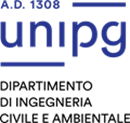Study-unit INFRASTRUCTURE ENGINEERING AND TRANSPORT ENGINEERING
| Course name | Civil engineering |
|---|---|
| Study-unit Code | A001723 |
| Curriculum | Infrastrutture |
| Lecturer | Gianluca Cerni |
| Lecturers |
|
| Hours |
|
| CFU | 4 |
| Course Regulation | Coorte 2022 |
| Supplied | 2022/23 |
| Supplied other course regulation | |
| Learning activities | Caratterizzante |
| Area | Ingegneria civile |
| Sector | ICAR/04 |
| Type of study-unit | Obbligatorio (Required) |
| Type of learning activities | Attività formativa monodisciplinare |
| Language of instruction | Italian |
| Contents | The course aims to provide the elements necessary for the study of infrastructure and transportation systems. |
| Reference texts | F.A. Santagata e altri, STRADE - TEORIA E TECNICA DELLE COSTRUZIONI STRADALI, vol.I - progettazione, Editore Pearson T. Esposito, R. Maurao, La progettazione funzionale dell estrade, Hevelius Edizioni Mannering, F.L., Washburn S.S., Principles of highway engineering and traffic analysis, 5th Edition (SI units), John Wiley & Sons. Transportation Research Board, Highway Capacity Manual, National Research Council, Washington, DC |
| Educational objectives | The course aims to provide the elements necessary for the study of infrastructure and transportation systems . The main expected learning results are: knowledge and understanding of the mechanics of locomotion, the study and stability of motion, the performance of punctual, linear and network transport systems; skill to select the right transport system. |
| Prerequisites | In order to deeply understand mathematical models involved in the program of the course and to reach the expected learning results the following elements are required: Mathematical analysis: analytic functions, differential and integral calculus of functions, partial differential equations. Physics: motion in the plane (position, speed and acceleration); dynamic (inertia, the concept of force) |
| Teaching methods | The course is organized in: Face-to-face lessons; Practical training; Seminars. |
| Other information | |
| Learning verification modality | The exam of the course consists of an oral discussions and the simultaneous evaluation of a project developed during the course. The oral exam, about 30-45 minutes, is directed to check out the knowledge level over the course contents, the acquired ability to apply the studied techniques and the ability to select the proper methodology by self-judgement. Furthermore, the oral exams have also the objective to evaluate communication skills and the usage of an appropriate language about the theoretical and practical subjects of the course. The final evaluation will be provided by a |
| Extended program | The course aims to provide the elements necessary for the study of infrastructure and transportation systems. Therefore, the course is organized in different units as in the following described: Mechanics of locomotion (the characteristic of traction, braking systems, motion study, motion stability) The performance of punctual systems (transit stations and head stations) The performance of linear systems (service levels and cross-section sizing) The performance of network systems. Transport economics. |


